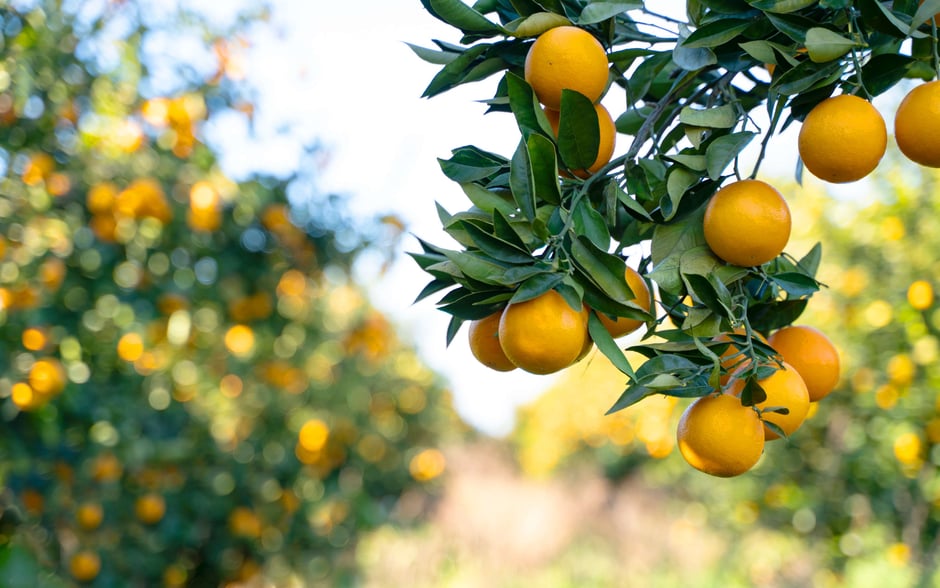Blog

Citrus fruits are as varied as they are useful. Whether you enjoy eating oranges by the slice, garnishing drinks with lemon wedges, or flavoring meals with lime zest, you may be tired of relying on the grocery store or farmer’s market for the citrus you need. That’s when you start thinking about growing your own citrus trees. This is certainly an option if you live in Southern California, one of the prime locations for growing citrus in the United States.
Whether you opt for orange, lemon, lime, or grapefruit, it’s important to know that all citrus trees are somewhat temperamental. Here’s how to create the proper conditions to grow big, juicy, pesticide-free citrus fruit.
- Soil conditions: Citrus trees love sandy loam but can adjust to any well-draining soil. Avoid dense, wet conditions that can promote root rot. Also, don’t add compost or organic amendments, which retain moisture and can damage citrus tree roots.
- Sunlight: Six to eight hours of direct sunlight are necessary to maximize the yield from your citrus trees.
- Planting: Citrus trees don’t like having damp roots, so it’s important to plant them only as deep as the root ball. While they grow year-round, planting citrus trees in the spring minimizes shock and stress.
- Watering: Water newly planted trees two to three times per week for the first year. After that, cut back to once or twice per week. You know it’s time to water when the top inch or two of soil is dry.
- Fertilizer: All trees and plants need nitrogen, phosphorus, and potassium, which you can get from Moon Valley Nurseries’ Moon Dust. Then, supplement your citrus tree’s diet with Moon Microboost to increase the production of large, juicy, flavorful fruit.
- Pruning: Citrus trees need occasional pruning to remove suckers or leggy branches. Freeze-damaged limbs should also be removed right away.
- Cold protection: All citrus trees are vulnerable to low temperatures. Freezing weather can be very damaging, especially to young trees. During cold snaps, cover your citrus trees with burlap, blankets, or other suitable covers. If possible, provide supplemental heat until the temperature warms back up.
- Disease and pest protection: Various fungal ailments and pests such as aphids, mites, and snails can damage citrus plants. Protect your trees without harmful chemicals using a natural, homemade pesticide. The recipe varies based on citrus type, pest type, and climate. Ask a tree professional for more information.
At Moon Valley Nurseries, we proudly supply a variety of popular citrus trees to homeowners in Southern California, including naval orange, eureka lemon, Mexican lime, and red grapefruit. For your convenience, we offer tree delivery using our trucks and cranes, and we can professionally plant your tree to ensure the best results. We guarantee every tree we sell, so you can rest assured that your investment will grow! For help picking out citrus trees for your Southern California home, please contact us online or visit a location near you today.
Submit a Comment